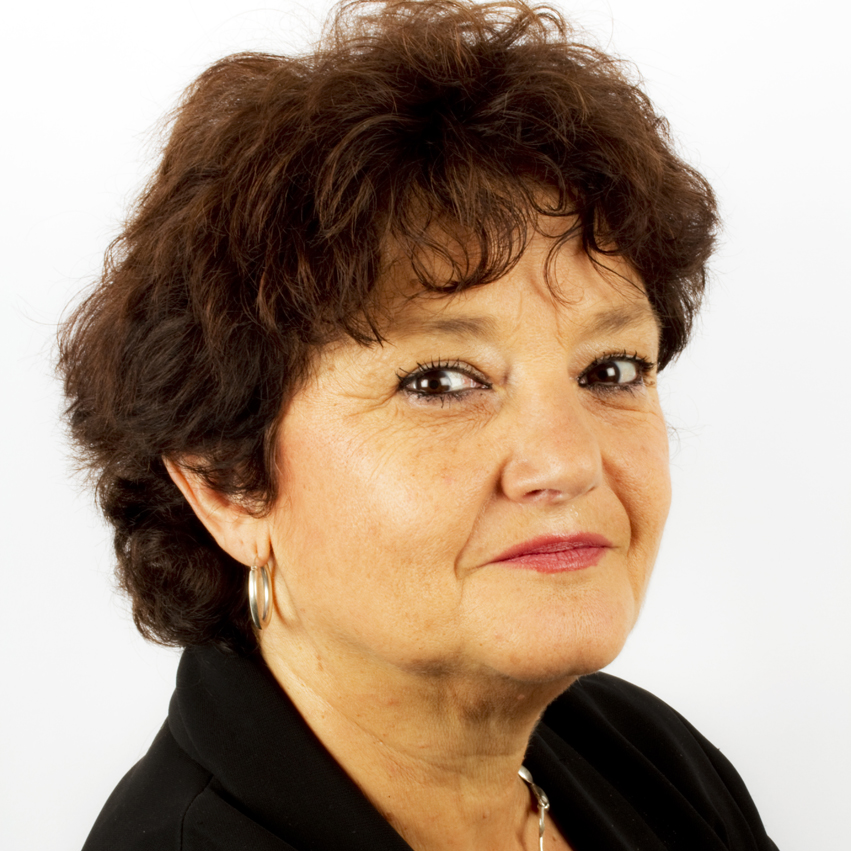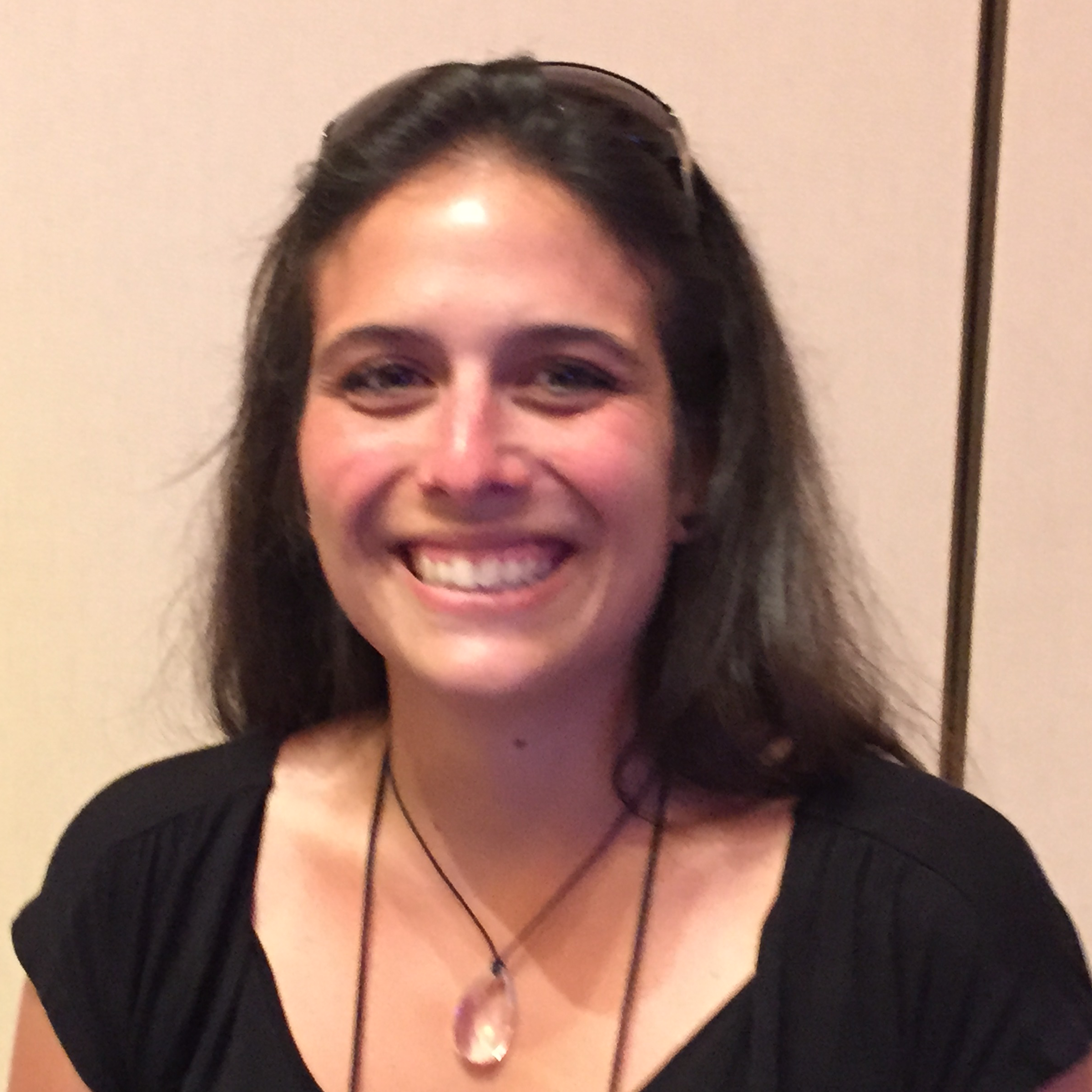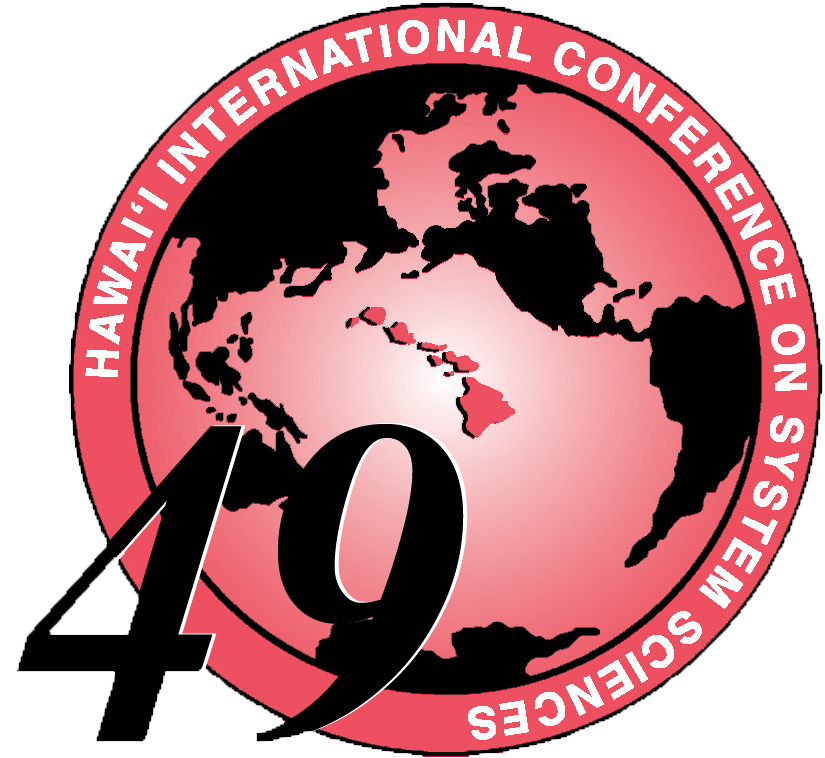HICSS - 49 E-Government Track
49th Hawaii International Conference on System Sciences
January 5-8, 2016 - Grand Hyatt, Kauai, HI, USA
Overview
Minitracks
Symposia and Workshops
Other Links
Smart Cities and Smart City Government



Smart city is a fuzzy concept, not well defined in theoretical researches nor in empirical projects. Several definitions, different from each other, have been proposed. However, all agree on the fact that a smart city is an urban space that tends to improve the daily life (work, school, ...) of its citizens (broadly defined). This is an improvement from different points of view: social, political, economic, governmental,... Finally, although smart cities are based on ICT (Information and Communication Technologies), people (with their knowledge, habits, experiences, culture and behavior) remain at the heart of concerns. In this context, this mini track aims at exploring what a smart city is and how a smart city is built and, therefore, at enlarging the still limited theoretical body around the concept of smart cities.
Minitrack topics include, but are not limited to:
- Smart city definition
- Smart city case studies
- e-Government in the urban space (smart government)
- Smart city and emerging technologies (big data, open data, social media & networks,…)
- Smart city and decision-making
- Smart city and security
- Smart city and knowledge management
- Smart city evaluation & performance measurement
- Smart cities’ critical success factors
- Smart city and open innovation
- Managing the smart city
More information on the mini-track chairs:
Mila Gascó-Hernández holds a MBA and a Ph. D. in public policy evaluation (Award Enric Prat de la Riba granted to the best Ph. D. thesis on public management and administration, given by the Escola d’Administració Pública de Catalunya in Barcelona, Spain). Nowadays, she is a researcher at the Institute of Governance and Public Management of ESADE. There, she is in charge of the ICT area of research. She is also the country leader of COMPOSITE (Comparative Police Studies in the European Union), a FP7 funded research project on change management in police organizations across Europe. Mila is a professor at the Open University of Catalonia, where she is doing a lot of supervising work on information society-related research and PhD thesis. She has a wide teaching experience (she worked as a full professor in the Rovira i Virgili University and as an associate professor in the Pompeu Fabra University) as well as research knowledge (apart from her work at different universities, for seven years, she was a senior analyst at the International Institute on Governance of Catalonia). She also has a lot of consulting experience on the information and knowledge society. In this respect, she has worked for a wide variety of organizations such as the United Nations Development Program, the Spanish Agency for International Development Cooperation, the City Council and the Provincial Council of Barcelona, the International Institute for Democracy and Electoral Assistance, the Latin American Centre on Management for Development (for whom she co-developed the Ibero-American Interoperability Framework), the World E-Governments Organization of Cities and Local Governments (she is a judge for the WeGo Awards), or Google. Her research interests include e-government interoperability, open government, innovation, and smart cities.
Camille Rosenthal-Sabroux is full Professor at Dauphine University, Paris IX. She is a graduate of PHD Pierre et Marie Curie, Paris VI, (1971) and HDR (habilitation à diriger des recherches) in Computer science (1996). From 1976 to 1989, she was assistant professor in Paris XI, in Expert System. Since 1989, she is Professor at Paris Dauphine University, Paris IX and advises some large companies (AG2R, Sallustro Redel Management, Bureau Veristas, PSA Citroën, Arcelor, France Télécom) about Information Systems, Knowledge Management, Decision Science. She is the founder of the SIGECAD Group, which domain topics are Information System, Knowledge Management and Decision Aid. Her main research topics are: Modeling Language (UML), Decision Aid, Knowledge Acquisition, Knowledge Management, and Information System. She is the Director of the Master “Extended Company’s Information System: Audit and Consulting”. She published several books and articles.
Elsa Negre received her PhD in Computer Sciences in 2009 from Université François-Rabelais de Tours, France. She was a postdoctoral fellow at Université du Québec en Outaouais (UQO), Canada in 2010-2011, then at Laboratoire d'Informatique Nantes-Atlantique (LINA), France in 2011. She is currently an Assistant Professor at Université Paris-Dauphine, France. Her research interests include recommender systems, similarity measures, information systems and knowledge management, data warehousing and social network analysis, early warning systems and smart cities. Dr. Negre authored and co-authored more than 20 publications in refereed journals and conferences.
Co-Chairs
Mila Gascó
(Primary Contact)
Institute of Public Governance and Management
ESADE – Ramon Llull University
Av. Pedralbes 60-62.
E-08034 Barcelona, Spain
Phone: +34-932-806-162
Email: mila.gasco@esade.edu
Camille Rosenthal-Sabroux
Université Paris-Dauphine LAMSADE
Place du Maréchal de Lattre de Tassigny
75778 Paris Cedex 16, France
Phone: +33-1-4405-4724
Fax: +33-1-4405-4091
Cell: +33-6-0807-1487
Email: sabroux@lamsade.dauphine.fr
Elsa Negre
Université Paris-Dauphine LAMSADE
Bureau B-220ter
Place du Maréchal de Lattre de Tassigny
75775 Paris Cedex 16, France
Phone: +33-1-4405-4184
Email: elsa.negre@dauphine.fr
